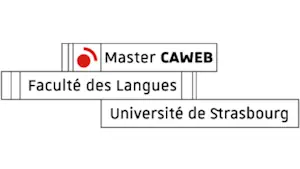Freelance translator or employed translator: which job is better for translation students?

Being a freelance translator or an employed translator, or even finding other translation related jobs? This may be the question that every student with a translation degree asks themselves before graduating. While these two jobs are similar one to another as their main assignment is the translation work, there are still some nuances, especially in terms of administration and work fashion, between the two siblings which may impact your final decision. In this article, we will compare the freelance translator job and professional translator hired in companies from multiple sights to help you to start the most suitable career.
Freelance translator vs Employed translator: Salary
Stable wages for in-house translators
There is no doubt that salary is the first concern for graduates. For translators hired in a translation company, his or her salary normally consists of two major parts: basic wage and bonus. The latter depends on the monthly performance-the number of translated words. As translators receive assigned missions instead of directly contacting clients by themselves, their monthly performance may not be extremely high but quite stable, and the difference among coworkers is not that obvious. Finally, because the company shares the insurance charge, this increases more or less the net salary.

High net incoming for freelancers
On the other side, for translation freelancers, they are paid for what they translate. At the beginning, when they are still struggling for enlarging the contacts and getting offers, it is true that the incoming can be very low, even miserable. But once the career took off, the net salary that freelancers get in hand can easily overcome in-house translators’ salary, for two reasons: 1- despite the tax and mandatory insurance fee, they keep all the payment, escaping from the commission charged by company, which sometimes can be heavy; 2- as freelancers develop their own contacts, theoretically, if they can sign enough contracts, their monthly performance can reach a high level. But, it is up to everyone to keep the balance between work and rest.
Besides, for freelancers, during the starting period, they can also benefit from several preferential policies to lower the tax as well as acquire financial aids. If you are interested in this top, check this article on our site to see the financial aids pour freelancers starting the career.
Freelance translator vs Employed translator: Softwares
Nowadays, CAT (computer-aided translation) tools are more than necessary for a high quality translation. There are many powerful softwares of this kind like the most famous Trados and Memoq and the number of these softwares is increasing every year. However, the strength of computers is not free. For example, the price for Trados Studio 2021 Freelance reaches up to 449 € at minimum!

Of course, when you work for a company, it is the company who takes care of the licences. Not only for the CAT tool, it may deploy a whole translation environment from CAT, terminology database to reviewing platform, normally provided by a third linguistic company. Or, it can also develop its own translation platform. In any case, translators have the full access to these tools and don’t need to worry about the expensive cost.
Unfortunately, translation freelancers have to consider the software cost. When starting the career, it may not be a good choice to purchase immediately all the softwares. As the income is limited and the licences are costly, they risk not being able to recover the investment. Luckly, they can take advantage of free substitution. While Trados Studio provides powerful and rounded functions, a free CAT tool such as OmegaT also allows you to carry out a fluide and efficient translation work. Sometimes, when we work for a big company or a linguistic provider, we can even ask for a temporary license for free!
Freelance translator vs Employed translator: Time management
Someone may have a preference for a freelance job thinking that they can start the day whenever they want and go off duty as early as they can, they are free from now! Well, that is not true. Actually, regular and reasonable time management is the key to success no matter whether you work for yourself or a company.
In fact, working as an in-house translator is easier to establish a right working rhythm. The company defines the on and off duty time, employees have just to follow this time set. And by doing so every day, an inner time cycle will be set up in our body, so we can keep the brain active during the work time and have a good rest to get the energy back. The fact that we work at a different place from home helps to set a line between work life and personal life, which allows us to work as effectively as possible when it is needed and fully enjoy life during the rest of time.

But for most freelancers, they just work at home. They may even translate and play on the same computer. That means it is difficult for them to clearly distinguish work time from personal time. Therefore, they can neither fully contribute to work during day time nor completely relax for the rest of time. What’s more, working under no supervision may loosen the tension, thus distracting the attention from work.
Freelancing requires discipline. Freelancers should know how to keep themselves busy during “duty time”. Even when they don’t have translation to do, they need to improve their competences, such as learning a new tool, reading articles in the target domains, or optimizing the CV, to raise the opportunity of obtaining offers. And when it comes to rest time, they need to get all the work stuff out of the brain. A good rest is a good preparation for better work.
In recap, the core of in-house translator and freelance translator is the same-the translation, but the differences between these two status make them adapted to different people for different purposes : if you don’t like to take risks and are happy with a stable income, working in a company is definitely a good outlet for you. But if you prefer working alone and you see yourself a master of time control, then why not try to carry out a freelance career!
Other articles
-

Discover our online Master’s CAWEB Program in digital communication
-

CAWEB Master’s Adds New Intercultural Communication Course
-

The 5 major UX/UI Design trends in websites for 2022
-

Getting Ready for Figma Config 2025? Here’s a Recap of Config 2024!
-

A Swiss is a Swiss is a Swiss, or the importance of website localization and multilingual SEO
